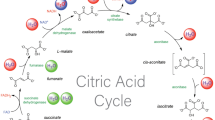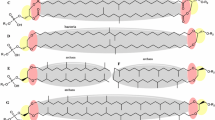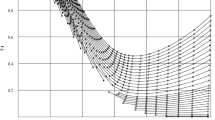Abstract
MILD heating (up to 36° C.) is known to produce a small increase of the spontaneous mutation-rates in Drosophila and in bacteria. We have found that using special conditions it is possible to have mesophilic non-sporogenic bacteria (Escherichia coli) survive relatively high temperatures (60° C.) ; this sublethal treatment produces a high frequency of mutations and unstable genes.
Similar content being viewed by others
References
Lederberg, J., Lederberg, E. M., Zinder, N. D., and Lively, E. B., Cold Spring Harbor Symposia Quant. Biol., 16, 413 (1951).
Goldstein, A., and Smoot, J. S., J. Bacteriol., 70, 588 (1955). Zamenhof, S., Greer, S., and De Giovanni, R., J. Bacteriol., 75, 510 (1958).
Zamenhof, S., De Giovanni, R., and Greer, S., Nature, 181, 827 (1958).
Zamenhof, S., Leidy, G., Hahn, E., and Alexander, H. E., J. Bacteriol., 72, 1 (1956).
Zamenhof, S., Leidy, G., Greer, S., and Hahn, E., J. Bacteriol., 74, 194 (1957).
Zamenhof, S., Bacteriol. Proc., 45 (1958).
Author information
Authors and Affiliations
Rights and permissions
About this article
Cite this article
ZAMENHOF, S., GREER, S. Heat as an Agent producing High Frequency of Mutations and Unstable Genes in Escherichia coli . Nature 182, 611–613 (1958). https://doi.org/10.1038/182611a0
Issue Date:
DOI: https://doi.org/10.1038/182611a0
- Springer Nature Limited
This article is cited by
-
Temperature responses of mutation rate and mutational spectrum in an Escherichia coli strain and the correlation with metabolic rate
BMC Evolutionary Biology (2018)
-
Lethal and mutagenic effects of elevated temperature on haploid yeast
Molecular and General Genetics MGG (1972)
-
Ultra-violet induced mutants of Chlorella pyrenoidosa
Archiv f�r Mikrobiologie (1962)





